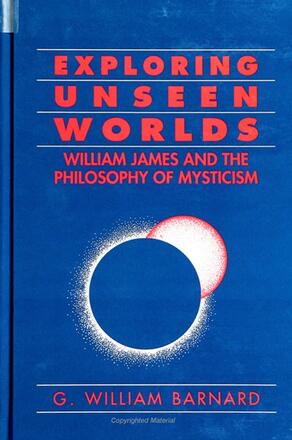
Exploring Unseen Worlds
William James and the Philosophy of Mysticism
Alternative formats available from:
Demonstrates convincingly the extent to which James's psychological and philosophical perspectives also continue to be a rich resource for those specifically interested in the study of mysticism. A critically-sophisticated, yet gripping, immersion into the inner worlds of one of America's foremost thinkers.
Description
Exploring Unseen Worlds is a critically sophisticated, yet gripping immersion into the inner worlds of one of America's foremost thinkers. It demonstrates convincingly the extent to which James's psychological and philosophical perspectives continue to be a rich resource for those specifically interested in the study of mysticism. The book focuses on James's enduring fascination with mysticism and not only unearths James's lesser-known works on mysticism, but also probes into the tacit mystical dimensions of James's personal life and uncovers the mystical implications of his decades long interest in psychical research.
G. William Barnard is Assistant Professor of Religious Studies, Southern Methodist University.
Reviews
"William Barnard has written a comprehensive anlysis of James's works showing the centrality of his views of mysticism and their relation to his theories of consciousness and pragmatism; most innovatively, he also integrates James's own spiritual experiences into the story of hisscientific and religious quest for cosmic meaning. With Barnard's thoroughness, clarity, and sensitivity to the inner life of religious experience, he has composed a work that is refreshing for its ability to speak to both academic and religious audiences. " -- Paul Jerome Croce, Stetson University; author of Eclipse of Certainty: Science and Religion in the Era of William James"Barnard has given us a splendid critical exposition of James's philosophy of mysticism/religion--one that will be of interest and accessible to a range of readers from those who are primarily interested in James's thought to those whose concern is the character and varieties of mysticism. His study centers on the richconcrete experiential data presented in the Varieities of Religious Experience but radiates out to bothJames's earlier and later works. Hence, James's philosophy of mysticism/religion is persuasively shown to be organically related to his metaphysics of experience, psychology, epistemology, and pragmatism. Barnard does not uncritically accept all Jamesian claims nor does his overlook or sugarcoat serious omissions and inconsistencies in James's thought. His creative criticisms, however, invariably both illuminate fruitful Jamesian insights and open them to transactions with other philosophies of mysticism--both Eastern and Western. " -- Eugene Fontinell, author of Self, God, and Immortality: A Jamesian Investigation